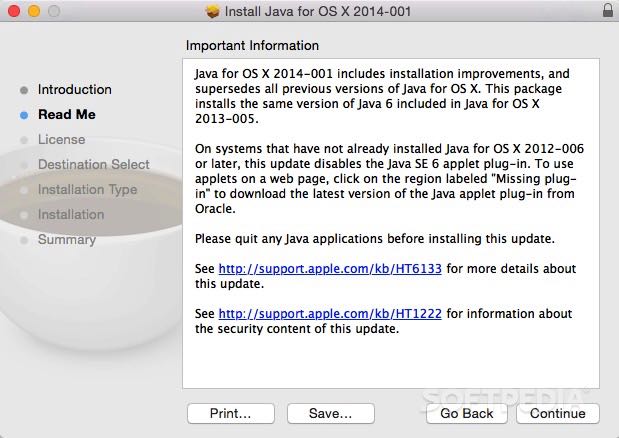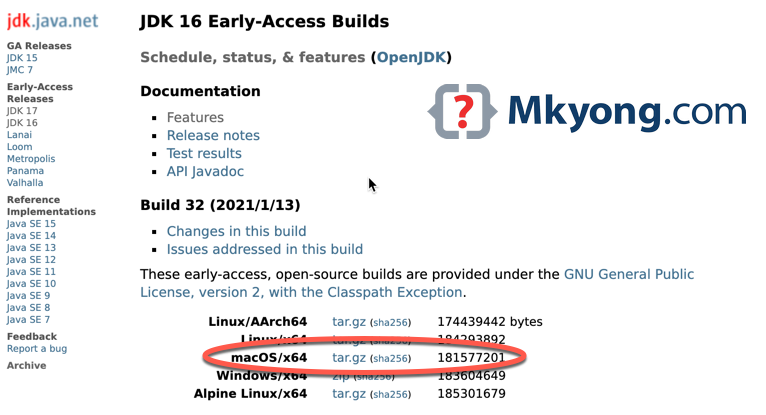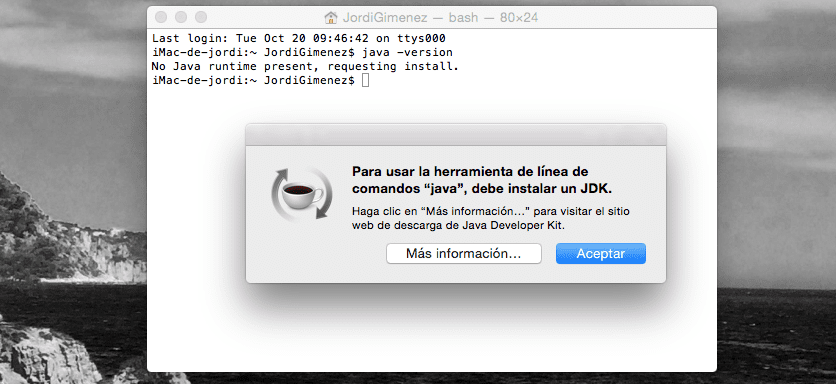

- INSTALAR JAVA MAC OS X HOW TO
- INSTALAR JAVA MAC OS X FOR MAC
- INSTALAR JAVA MAC OS X UPGRADE
- INSTALAR JAVA MAC OS X FREE
INSTALAR JAVA MAC OS X HOW TO
Easy to follow details about how to install OpenJDK are available here. As I’m writing this, Java 11.0.9 is the latest LTS (Long Term Support) version and AdoptOpenJDK is one of the best places to find Prebuilt OpenJDK Binaries. You can go thru their documentation briefed in their github page.Since OS X 10.7 Java is not (pre-)installed anymore, let’s fix that. There are lot more features that jenv offers. * system (set by /Users/vranganathan/.jenv/version) To list all the java installs managed by jenv run:

Jenv provides you different commands to switch java versions based on your needs. If you have multiple java installations on your machine, you would have to add all the java installations to jenv. Once the jenv add command succeeds, you should see a message like this jenv and versions in your home directory and run the add command again. If you encounter this result when adding your java version, all you need to do is to create a directory. Ln: /Users/your_username/.jenv/versions/oracle64-1.8.0.162: No such file or directory PS: You might run into problems with the following error when trying to run the above command. That’s it, your java version can be managed by jenv now. ~> jenv add /Library/Java/JavaVirtualMachines/jdk1.8.0_162.jdk/Contents/Home/ Run the following command to add java versions for jenv to manage for you. If you see the following result after your, brew install jenv command, then you have successfully installed jenv on your machine. ~> echo 'eval "$(jenv init -)"' > ~/.bash_profile If you have made it this far, it is assumed that you have installed homebrew on your machine, so lets get started right away to install jenv.Īll you need to install jenv is to run the following command. Jenv is a utility tool that manages multiple versions of java and gives you control to switch java versions with ease. Let’s look at how to manage multiple java versions in an awesome way. Luckily, to our rescue is an awesome tool called jenv. Managing multiple java versions might be a nightmare and requires some effort.
INSTALAR JAVA MAC OS X UPGRADE
You do not want to upgrade your projects, but still, try out new and cool language features. Part 3: Install jenv to manage multiple version of java on Mac OS X:Īlright, now that you have java, let’s say within six months from now you get a new release for java.

You have now successfully installed java on your Mac. Step 2: Install java: ~> brew cask install java8 Observe that the output shows that java8: 1.8.0_162-b12 is not installed. Step 1: Verify if you have a java version: Now all you have to do is to run the following command in your terminal. Now you have all the power to install awesome tools from homebrew. (Visit this place to see any other interesting way to install cask). Verify that you have correctly installed homebrew by running the following command.Īlso, while you do this, do install the homebrew-cask by running the following command. If you do not have the tool installed yet, please do visit homebrew’s webpage to know how to install homebrew on your local machine. IMHO, if you are going to develop java apps or, to that matter of fact any programming in your Mac, I feel its almost mandatory to have homebrew tool installed on your machine. Before getting to how to manage multiple versions of Java, let’s get to how to install java on a Mac OS X.
INSTALAR JAVA MAC OS X FOR MAC
There is an awesome way for Mac users to install and manage their Java installations in a graceful way. Part 1: Install Homebrew and Homebrew-cask: Part 3: How to manage multiple java installations using jenv. Part 2: How to install java using homebrew. Part 1: How to install homebrew and homebrew-cask
INSTALAR JAVA MAC OS X FREE
Feel free to jump on to any part as per your needs. TLDR I have split this post into three parts. The obvious next challenge would be to manage these installations and not mess up the java installation on our local machine. With Oracle opting to release for every six months (more info on this here), it’s obvious that we would end up having multiple java versions on our machine. The Only Thing That Is Constant Is Change.


 0 kommentar(er)
0 kommentar(er)
